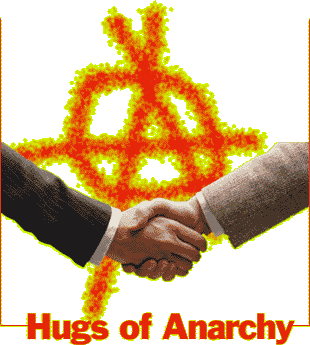
Years ago, my mommy taught me to shake hands with men and kiss the ladies' hands. That was long ago in a polite country at the edge of the old Austria-Hungary empire, which had to be the most polite empire on earth. We even had a greeting for acquaintances glimpsed at a distance too great to touch. We said "servus" to men, which comes from the Latin and translates as "your servant," and "saru-mina" for women, which is Romanian and means "I kiss your hand."
The empire collapsed, but those forms remained and survived decades of proletarian rule during which only the comradely handshake was recommended, along with the healthy greeting, "good day" or "good night, comrade," used for both men and women. The dictatorship of the proletariat attempted to thus instill equality in our daily contact with other humans, but the cozy manners of the empire survived these attempts, partly because they became subversive. Kissing hands became a resistance strategy, as did the inconceivably feudal "servus."
In Paris, where manners changed dramatically after the French revolution, the handshake for men and the double-kiss -- one smooch on each cheek -- for women, remained the democratic standard. Street urchins and Freemasons, as well as many other secret societies, had their secret handshakes -- but they stayed secret.
In America, the handshake was, until recently, the prevailing greeting for both men and women. A peck on the cheek for one's women friends was permitted, but anything going beyond that was frowned upon as old-world decadent. One might make the case that America is democratic to the core and expressions of servility were purged from it, leaving only the handshake. On the other hand, the old Puritan terror of the body may have been at the root of it. Flesh breeds sin as well as germs, so the less contact with it the better. America has the largest number of germophobes in the world, people who don't touch other people or wash their hands compulsively after they do.
Happily, the counterculture saw to it that some bodily warmth and variation entered the scene. In the mid-'60s, white kids borrowed the high-five from black kids, and from that point on, a variety of handshakes, hugs, and greetings started rushing in from the margins and turning mainstream. The New York Times reports that, "sometimes it seems nobody under 30 defaults to a straight handshake anymore." The high-five has been replaced by the knuckle-to-knuckle fist bump, and everyone hugs, squeezes, smooches, and greets any way they like. Is this anarchy or the happy relaxation of prosperous multiculturalism?
Whatever it is, social encounters are deliciously awkward now and thus conducive to reflection. Nothing like being suspended between a shake, a hug, or a kiss. In that gap live the poems.
Andrei Codrescu wrote Messi@h, a novel.
